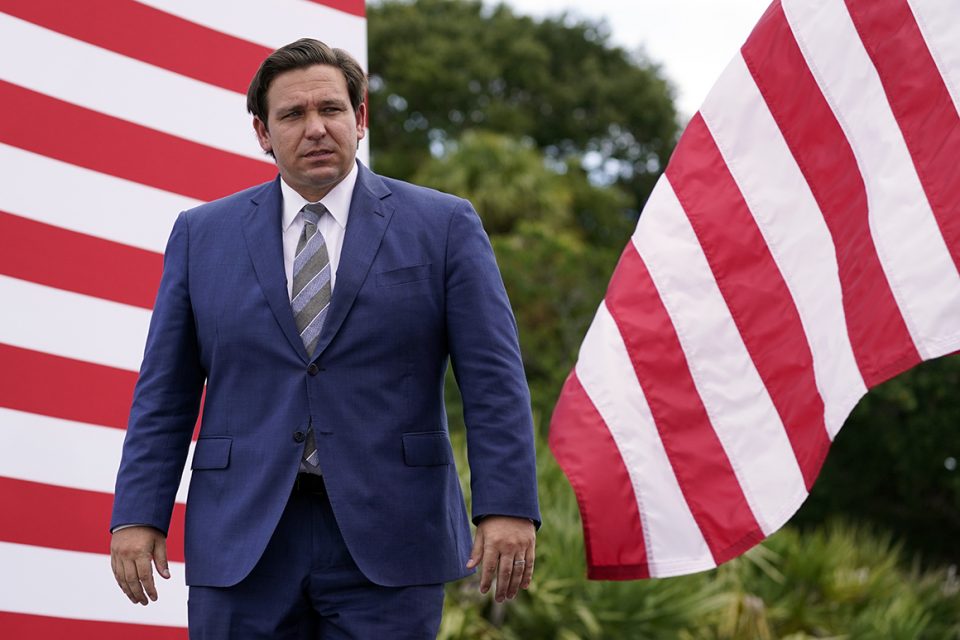From our friends at DemocracyDocket.com
Among the many troublesome anti-democratic bills that advanced through the Texas Legislature this session was House Bill 17, which went into effect on Sept. 1. Touted by Republicans as a way to reign in “rogue” prosecutors, the new law expands the definition of “prosecutorial misconduct” and allows anyone to file a complaint for impeachment against their local prosecutor.
In plain language, this means that district attorneys, who are democratically elected locally and tasked with prosecuting crimes, can be removed from office if they defend the right to abortion, refuse to prosecute the parents of trans teens or decline to prosecute people with small amounts of marijuana. At their core, these bills undermine the long-standing tradition of prosecutorial discretion, which is the ability of a prosecutor to decide what cases to take to trial and on what charges.
Red States Wage War on Blue Cities
Bills that remove discretion from local prosecutors are on the rise, especially in the realm of criminal justice. A January 2023 report by the Public Rights Project points out that 17 states have proposed or adopted legislation that limits the discretion of local prosecutors.
All of these bills are designed to stifle the will of voters of color and suppress local autonomy during a time when state legislatures are running excessively far to the right. Unchecked gerrymandering and the weakening of the Voting Rights Act put disproportionate numbers of extreme state legislators into statehouses across the country who are out of step with the popular will. In Wisconsin, for example, where the legislature is so far-right that members tried to help former President Donald Trump overturn the election results, voters statewide elected a state Supreme Court justice who promised to preserve abortion rights.
Many of the prosecutors impacted by this right-wing trend are Black elected leaders often in cities with large Black populations.
As a backlash to criminal system reforms that have empowered Black and Brown communities through elected prosecutors, some of these laws are designed to limit the discretion of prosecutors in certain types of cases. For example, legislators in Pennsylvania removed firearm prosecutions from Philadelphia District Attorney Larry Krasner (D) and gave that power to the attorney general.
And in Florida, Republican presidential candidate and Gov. Ron DeSantis signed legislation empowering Florida Attorney General Ashley Moody (R), a member of the Federalist Society, to prosecute all election-related crimes. DeSantis sought to take election cases away from local prosecutors after they were using their discretion in a way DeSantis didn’t like, namely by not charging formerly incarcerated people who improperly voted. (The prosecutor felt that those who voted without intent to break the law should not be charged; DeSantis clearly disagreed.) Not to mention, almost all of DeSantis’ voter arrests were Black residents.

Such tactics are not new. Once federal troops were withdrawn from the South after the Civil War, state legislatures quickly adopted a series of criminal laws, often called Black Codes, that reinstated a slavery-like system. Many of them forbade everyday activities like walking, sitting or standing. Black people were kidnapped off the streets and forced to “work off” their punishment.
Red States Wage War on Blue Cities
In places where the newly emancipated electorate had chosen Black leaders, Confederate sympathizers argued that the elections were fraudulent and, in some cases, waged bloody riots to reinstate their own candidates, who would continue to apply injustice. In Louisiana and North Carolina, white southern ex-confederates committed mass murder to reinstate all-white rule. They called themselves “Redeemers” and justified their quest in religious terms. The “Redeemers” turned to other tricks: closing polling places, making sure the voting lines were long and enforcing “understanding clauses” — basically, reading tests to make it hard for Black men to vote. They all wanted state rule.
Similarly, the precursors to the current wave of power grabbing laws were a series of recalls targeting left-leaning prosecutors who sought racial justice. DeSantis removed one prosecutor who pledged not to prosecute individuals seeking abortions nor transgender care; now, he is considering removing another prosecutor, Monique Worrell, a Black law professor elected in 2020. In Philadelphia, Republican state legislators attempted, and failed, to impeach Krasner. And in St. Louis, the reform-minded District Attorney Kim Garner (D), also Black, resigned when the state legislature threatened to strip her office of power.
Many of the prosecutors impacted by this right-wing trend are Black elected leaders often in cities with large Black populations. Take Jackson, Mississippi. In February, state legislators passed a law opting for a separate state-run criminal system, full of state-appointed prosecutors, judges and police. In essence, the state is punishing the residents of Jackson, who are 82% Black, by removing their ability to participate in the democratic process. (The bill is currently being challenged in litigation.)
Red States Wage War on Blue Cities
As states pass more laws that criminalize honest voter mistakes, local prosecutors have often opted not to prosecute when there is a lack of intent. GOP-led states now seek to remove this power from local control, and instead hand it to their Republican attorney generals. Already, in states like Arizona and Texas, we’ve seen how that turned out.
Last year, former Attorney General Ken Paxton (R), who has since been removed from office pending his impeachment trial, argued — falsely and without evidence — that “some officials in our most problematic counties will simply let election fraud run rampant” unless his office intervenes. In Yuma County, Arizona, former Attorney General Mark Brnovich (R) aggressively pursued Latino citizens for “ballot harvesting,” and sent one woman to jail.
GOP-run states have already shown their willingness to stifle racial equality in any way they know how. By enacting bills aimed at local prosecutors, these states are stripping communities of their right to self-determination and moving further away from a functional democracy.
